Dandelion leaves, roots, seeds, and blossoms may provide various health advantages, such as supporting liver function, lowering inflammation, and aiding blood sugar control.
Often dismissed as a persistent yard weed, dandelion has a long history of use in traditional medicinal practices.

Beyond adding color to meals, dandelion leaves, roots, and flowers are commonly included in herbal teas and supplements. They’ve traditionally been used as a natural aid for blood sugar support and to enhance skin, liver, and cardiovascular health.
This article examines the possible health benefits of dandelion, along with common risks and adverse effects.
Dandelion plants are very nutrient-dense
From root to bloom, dandelions are packed with vitamins, minerals, and dietary fiber.
Dandelion greens can be consumed raw or cooked and are an excellent source of vitamins A, C, and K. They also supply vitamin E, folate, and modest amounts of other B vitamins. The greens deliver several minerals, including iron, calcium, magnesium, and potassium.
The root of the dandelion contains a high level of inulin, a plant-derived soluble fiber that supports the growth and maintenance of beneficial gut bacteria in the digestive tract.
Dandelion root is commonly dried and brewed as tea, but it can also be eaten raw like other root vegetables.
Dandelions are rich in antioxidants
Dandelion contains powerful antioxidants, which likely underlie many of its therapeutic effects.
Antioxidants are substances that neutralize free radicals — molecules produced by metabolism that, when abundant, can increase the risk of chronic disease. Therefore, antioxidants are important for overall health.
Dandelions contain substantial amounts of the antioxidant beta-carotene, which may shield cells from damage and oxidative stress.
They’re also abundant in polyphenols, another class of antioxidants concentrated mainly in the flowers but also present in roots, leaves, and stems.
Dandelion compounds may combat inflammation
Dandelion might reduce inflammation due to bioactive compounds like polyphenols.
Inflammation is a normal immune response to injury or infection, but when it becomes chronic it can harm tissues and DNA.
Some in vitro studies, such as this one from 2022 and this one from 2017, report marked reductions in inflammatory markers in cells exposed to dandelion-derived compounds.
Another 2023 animal study found that a dandelion tincture lowered oxidative stress and showed heart-protective effects.
Nonetheless, research in humans is still necessary.
Dandelion compounds may assist blood sugar control
Chicoric and chlorogenic acids, present in dandelion flowers, leaves, and roots, may contribute to lowering blood glucose.
Laboratory and animal research indicates these compounds may enhance insulin secretion (the hormone that controls blood sugar) and glucose uptake in muscle tissue.
These actions can improve insulin sensitivity and lower blood glucose levels.
Chicoric and chlorogenic acids may also slow the digestion of starchy carbohydrates, which could further support dandelion’s potential to reduce blood sugar.
While promising, additional human studies are required.
Dandelion constituents may lower cholesterol and triglycerides
Various compounds found throughout the dandelion — in roots, leaves, seeds, and flowers — may help reduce triglyceride and cholesterol concentrations, important risk factors for cardiovascular disease.
Some polyphenols in dandelion, including flavonoids and hydroxycinnamic acid derivatives, may possess lipid-lowering effects.
A 2022 study reported potential cardioprotective effects of dandelion, including reduced cholesterol levels.
However, current evidence comes mainly from lab and animal models; human trials are needed.
Dandelion leaf extract may help reduce blood pressure
Some suggest that extracts from dandelion leaves may lower blood pressure, but studies are limited.
In conventional medicine, diuretics are prescribed to remove excess fluid from the body, which can lower blood pressure.
One human study reported that dandelion acted as an effective diuretic, though it was short and included only 17 participants.
Dandelion also contains potassium, a mineral associated with reduced blood pressure in individuals with previously elevated levels. Thus, the plant may influence blood pressure indirectly through its potassium content.
Importantly, this effect is not unique to dandelion — any potassium-rich food consumed as part of a balanced diet may have similar benefits.
Dandelion root extract may support liver health
Some animal research suggests dandelion extract could protect against liver injury and disease.
A 2021 animal study found that dandelion root extract helped prevent liver damage in rats with chemically induced liver failure.
Other animal studies, such as this one from 2016, indicate that dandelion root extract may reduce excess fat accumulation in the liver and protect against oxidative stress.
Human research is still needed to confirm these effects.
Dandelion constituents may aid weight management
Some evidence suggests dandelion and its compounds could support weight control, though findings are inconclusive.
Researchers propose that dandelion’s influence on carbohydrate metabolism and reduced fat absorption might promote weight loss, but this theory lacks strong human evidence.
An animal study in mice indicates dandelion extract may help with weight control by decreasing fat absorption.
Another mouse study found chlorogenic acid, a compound in dandelion, lowered body weight, reduced fat accumulation, and modified levels of certain proteins involved in weight regulation.
Still, more rigorous human research is required.
Dandelion root extract may exhibit anticancer activity
One of the more intriguing claims is that dandelion extract could hinder the growth of cancer cells in several organ systems.
A 4-week rat study showed that dandelion root extract altered pathways involved in suppressing the proliferation and spread of breast cancer cells.
Other in vitro studies, like this one from 2017, reported that dandelion root extract may inhibit cancer cell growth in liver, colon, prostate, and stomach tissues.
These results are promising, but human clinical trials are missing.
Dandelion greens and roots may aid digestion and relieve constipation
Dandelion is traditionally used to ease constipation and support digestive function.
An older animal study observed a notable increase in gastric contractions and faster stomach emptying in rats given dandelion root extract.
Dandelion root is also rich in the prebiotic fiber inulin, which has been shown to alleviate constipation and promote intestinal transit.
Additionally, cooked dandelion greens provide over 3 grams of fiber per cup (105 grams), potentially boosting your daily fiber intake. Fiber supports regular bowel movements and lowers the risk of digestive issues such as hemorrhoids and diverticulitis.
Dandelion root extract may enhance immune defense
Some studies suggest dandelion has antimicrobial and antiviral effects that could help the body resist infections.
Several in vitro studies, including this one from 2018 and this one from 2023, found that dandelion root extract substantially reduced viral replication.
Research also indicates some active dandelion compounds are effective against harmful bacteria and fungi.
Ultimately, more human-oriented research is required.
Dandelion root extract may be useful for skin care
Laboratory and animal studies note that dandelion extract may defend skin from damage caused by sun exposure, aging, and acne.
In a 2022 study, a fermented dandelion extract prevented skin damage when applied immediately before or after UVB exposure, the type of ultraviolet radiation from sunlight.
An earlier in vitro study showed that dandelion root extract promoted the formation of new skin cells, which may help maintain skin appearance with age.
Also, older research suggests dandelion extract may lessen skin inflammation and irritation while enhancing hydration and collagen production, potentially aiding in the prevention and treatment of some acne types.
However, recent clinical research on dandelion’s skin benefits is limited and primarily restricted to lab and animal models.
Dandelion greens may contribute to bone health
Limited research has assessed dandelion’s impact on bones, but several of its nutrients support bone strength.
Dandelion greens supply calcium and vitamin K, both essential for bone health.
A small 2020 study associated higher consumption of vitamin K–rich leafy greens with lower blood levels of osteocalcin, a bone protein, suggesting that eating more leafy greens like dandelion could help prevent bone loss.
Inulin in dandelion root may also promote bone health by improving digestion and gut function.
Moreover, research such as this 2017 study indicates that antioxidants in dandelion and other greens help protect bones by reducing oxidative stress.
Suggested dandelion dosages
Many people eat dandelion leaves, stems, and flowers in their whole form, either raw or cooked. The root is typically dried and brewed as tea or used as a coffee substitute.
Dandelion is also sold as supplements in capsules, extracts, or tinctures.
There are no universally established dosing guidelines because human research is limited. However, this 2016 study proposes these dosages for various dandelion preparations:
- Fresh leaves: 4–10 grams daily
- Dried leaves: 4–10 grams daily
- Leaf tincture: 0.4–1 teaspoon (2–5 mL) three times per day
- Fresh leaf juice: 1 teaspoon (5 mL) twice daily
- Fluid extract: 1–2 teaspoons (5–10 mL) daily
- Fresh roots: 2–8 grams daily
- Dried powder: 250–1,000 mg four times per day
Possible risks and adverse effects of dandelion
Dandelion has low toxicity and is probably safe for most people, especially when eaten as food. Nevertheless, evidence remains limited, and there are potential risks.
The plant can trigger allergic reactions, particularly in individuals sensitive to related species like ragweed. Those with delicate skin may experience contact dermatitis.
An earlier 2013 study noted that dandelion could interact with certain medications, including some antibiotics, blood thinners, and glucose‑lowering drugs.
If you use prescription medications, consult a healthcare professional before starting dandelion supplements.
Frequently asked questions about dandelion’s health effects
What are dandelions good for?
Dandelion roots, greens, and flowers are edible and contain vitamins, minerals, and fiber. The plant may offer medicinal effects, but more human studies are needed to verify these benefits.
Is it safe to take dandelion every day?
Eating dandelion as part of a varied diet is likely safe for most people, but more data are needed on daily supplementation. Allergic reactions are possible in susceptible individuals.
What does dandelion do for hormones?
Dandelion may support insulin secretion, the hormone that helps regulate blood glucose.
What are the cons of dandelion?
Although dandelion may provide several health benefits, human research is limited. Allergic reactions can occur, especially in people allergic to related plants like ragweed and daisies.
Bottom line
Despite many possible advantages, dandelion plants and supplements should not replace a balanced diet and healthy lifestyle. Evidence for specific therapeutic uses is limited, particularly in humans.
Still, incorporating dandelion greens, roots, and flowers into meals — in salads, baked dishes, sides, and snacks — offers a unique, nutrient-rich addition to your diet.
If you’re considering dandelion as a supplement, speak with a physician or registered dietitian first.


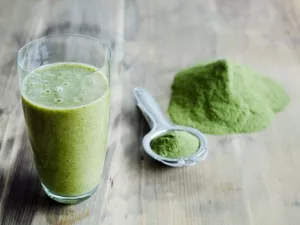
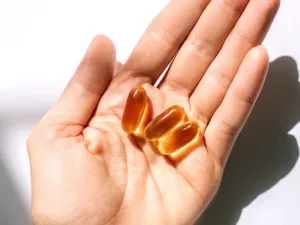
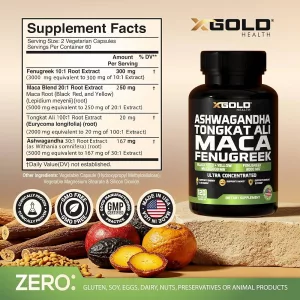

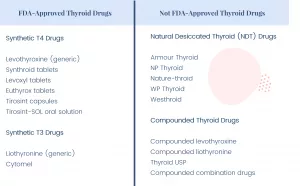
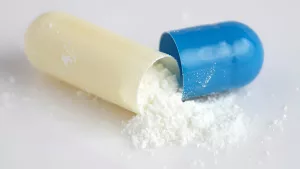
















Leave a Reply
You must be logged in to post a comment.